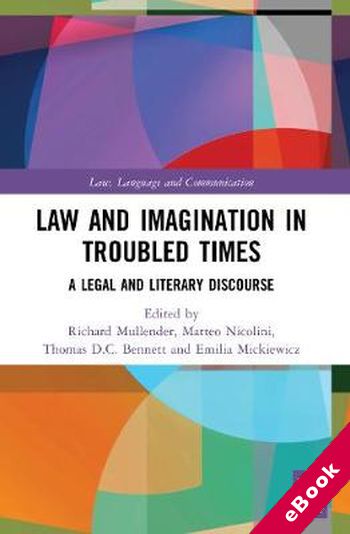We are now closed for the Christmas and New Year period, returning on Monday 5th January 2026. Orders placed during this time will be processed upon our return on 5th January.

The device(s) you use to access the eBook content must be authorized with an Adobe ID before you download the product otherwise it will fail to register correctly.
For further information see https://www.wildy.com/ebook-formats
Once the order is confirmed an automated e-mail will be sent to you to allow you to download the eBook.
All eBooks are supplied firm sale and cannot be returned. If you believe there is a fault with your eBook then contact us on ebooks@wildy.com and we will help in resolving the issue. This does not affect your statutory rights.
This collection focuses on how troubled times impact upon the law, the body politic, and the complex interrelationship among them. It centres on how they engage in a dialogue with the imagination and literature, thus triggering an emergent (but thus far underdeveloped) field concerning the ‘legal imagination.’
Legal change necessitates a close examination of the historical, cultural, social, and economic variables that promote and affect such change. This requires us to attend to the variety of non-legal variables that percolate throughout the legal system. The collection probes ‘the transatlantic constitution’ and focuses attention on imagination in a common law context that seems to foster imagination as a cultural capability.
The book is divided into four parts. The first part begins with a set of insights into the historical development of legal education in England and concludes with a reflection on the historical transition of England from an absolute monarchy to a republic. The second part of the volume examines the role that imagination plays in the functioning of the courts. The third part focuses on patterns of thought in legal scholarship and detects how legal imagination contributes to the process of producing new legal categories and terminology. The fourth part focuses on patterns of thought in legal scholarship, and looks to the impact of the imagination on legal thinking in the future.
The work provides stimulating reading for those working in the areas of legal philosophy, legal history and law and humanities and law and language.